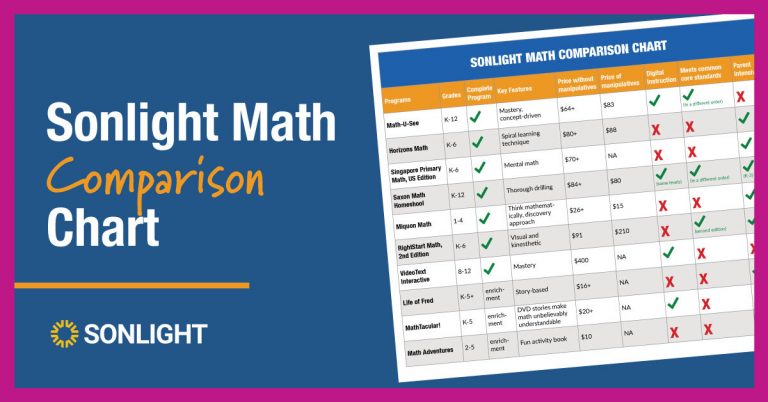Most of us carry cell phones that put calculators at our fingertips. Cash registers tell cashiers exactly how to give change. Do we even need to memorize math facts anymore?

Do children still need to learn addition 1+1 to 10+10 and multiplication 1x1 to 12x12 by heart?
Or should math facts be lumped into the out-of-date bucket where many have tossed cursive handwriting (thanks to keyboarding) and spelling (thanks to autocorrect and spell checkers)?
Here's my case that yes, children do need to memorize math facts!
1. Calculators Impede Mental Math
Children who are dependent on calculators for basic math skills can run into other problems. Because they don’t see math facts in action, they may not fully understand the underlying concepts. This math gap can lead to errors and frustration. Dependence on calculators makes it difficult to quickly and accurately estimate, too.
2. Memorizing Math Facts Builds Math Fluency
Math fact memorization is the cornerstone of math fluency—the ability to recall math facts quickly, effortlessly, and accurately.
Similar to how motor memory helps children perform handwriting skills without having to think about the formation of each letter, math fact memorization helps children retrieve math answers without having to stop and calculate every time they tackle a problem.
3. Fact Fluency Frees Working Memory
When a child has math facts memorized, more of their brain’s working memory is freed up to focus on more difficult concepts. Instead of trying to add and multiply each step, they can concentrate more on higher order math skills.
4. More Working Memory Decreases Cognitive Load
When math facts are memorized, it's easier to complete complex, multi-step problems.
People are able to hold only a limited number of facts in working memory. Struggles with working memory overload often show up with word problems. If a child struggles with simple addition and subtraction, word problems clutter up the brain, making it harder to understand not only what is being asked but how to work the problem.
Somewhere between reading the problem, comprehending the situation, identifying the pertinent information, performing the assorted computations in the correct order, and identifying and labeling the solution, there is just too much information for some children to sort through.
5. Memorizing Facts Reduces Errors
Many parents remember (or have seen) children try to complete a long division problem, and get frustrated trying to figure out how many times 8 goes into 70, or 6 goes into 49. Children will add up columns of numbers to get the right multiple, and then repeat it for the next step in the problem.
However, each time a child stops to add up numbers, it increases the chance of them making an error. They might accidentally mark 6x7 as 41, or 43, or 52. Because it gets lost in a series of steps, it goes unnoticed until grading time. However, one mistake in the problem makes the entire answer wrong.
Children who can fluently recall math facts greatly reduce the number of simple mistakes they make.
6. Math Skills Build Logically Upon Math Facts
As Mr. Demme, creator of Math U See math curriculum, often repeats throughout his videos
- Addition is merely fast counting.
- Multiplication is fast addition.
- Exponents are fast multiplication.
- Subtraction is counting backwards quickly.
- Division is counting backwards even more quickly.
If your child can speed up counting, adding, multiplying, etc., they can more easily grasp facts and concepts which build upon each other.
7. Fact Memorization Reduces Math Anxiety
Children who cannot adequately recall math facts tend to work more slowly and make more mistakes, which leads to fear of performing poorly. Then they start to second-guess their answers, leading to further mistakes and an ever slower pace. This cycle can be hard to break!
Children who make fewer errors and can complete math assignments more quickly are less likely to suffer from math anxiety.
8. Math Recall Increases Testing Performance
Children who know how to do the problems on standardized tests but struggle with basic math facts will spend far more time computing minor calculations and reduce the amount of problems they are able to answer in a given time period. Their slower pace can mean lower test scores which can exacerbate feelings of shame, anxiety, and math phobia.
Children who are less frustrated make fewer errors and are less mentally fatigued by math problems, so they often enjoy math more. They are confident and know they can complete higher level problems with less effort, which may make math enjoyable and help assignments and tests take less time.
9. Elementary Level Math Skills Offer Greater Future Opportunities
If children enjoy math and aren’t intimidated by complex math problems, they are more likely to take an avid interest in STEM subjects (science, technology, engineering, and math). These areas of study are predicted to have the most job growth and earning potential.
Whether your child learns math facts quickly or works on them slowly over time, they will benefit from memorizing them. In fact, brain imaging studies have shown actual changes in the brain in people who have learned math facts by memory. While trying to memorize math facts might seem tedious, it is a skill that will benefit your child in large and small ways both now and in adulthood.

See the math programs Sonlight recommends and find your perfect math fit.







